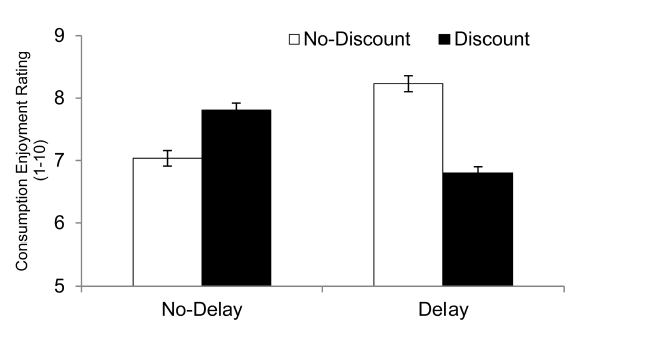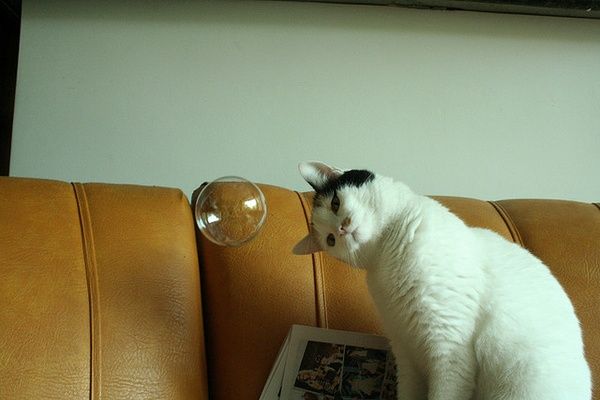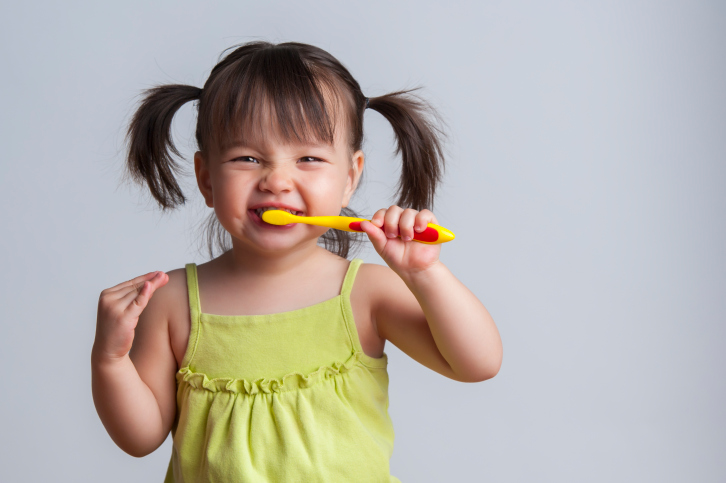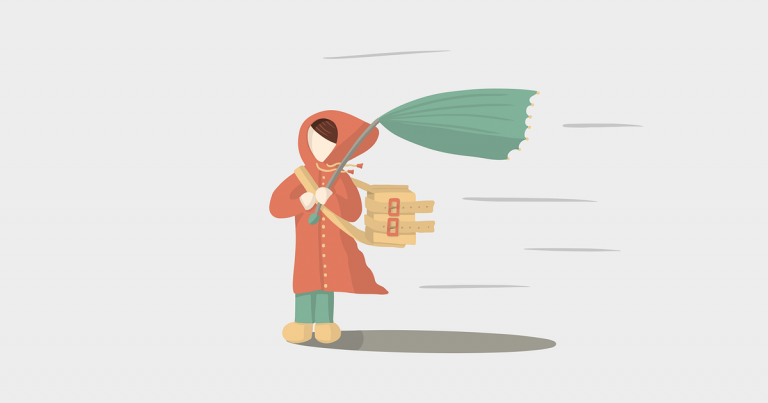Discounts Can Discount Enjoyment
A bargain ain’t a bargain unless it’s something you need. — Sidney Carroll
There are few things people enjoy more than getting a good deal. In fact, in data I personally collected, “finding good consumer deals” was ranked as one of the most enjoyable activities people engage in—and this was from a list of 100 different everyday activities!

Sometimes, discounts can actually lower your enjoyment of the product.
THE PAIN OF PAYMENT
Psychologists who study consumer behavior have coined that negative feeling of paying for consumer goods or experiences as “the pain of payment.” And in fact, brain imaging studies have shown that paying excessive amounts for consumer goods actually activates similar brain regions (i.e., the insula) associated with physical pain!

Research has shown that discounts can elevate shoppers’ moods, enhancing both their evaluations of the discounted product but also their evaluations of totally unrelated products. In one study, when researchers improved consumers’ mood by providing them with a discount toward a product, those consumers misattributed their positive mood from the discount to other, unrelated products—reporting more liking for those products as well!
However, discounts aren’t always so fine and dandy, and depending on when you use or consume the discounted product can make all the difference.
EH, IT WAS CHEAP
When we make decisions, we like to think we made the right decision. Otherwise, we have to live with the dissatisfaction that we made a bad choice. Researchers call this phenomenon cognitive dissonance (i.e., where justify our decisions after the fact to convince ourselves we made the right choice).

In one study, researchers gave participants a $1 to purchase one of two chocolate truffles. In one condition, participants had to pay the full price for the truffle ($1), whereas in the other condition, participants were able to buy it at a discount ($0.50).
Then, half of those participants were able to eat their chocolate truffle in that moment, whereas the other half of participants received their truffle a week later (the researchers claimed they had to go out and buy them first).
After the participants consumed their truffle, they then rated their liking of it.

The researchers replicated these findings with music (i.e., buying a song at full price vs. a discount and then listening to it immediately vs. 25 minutes later) as well as with orange juice.
The researchers went onto show that when we consume something immediately, the joy of getting a discount transfers to our enjoyment of the product. However, when there’s a delay between our purchase and consumption, we use that extra time to “justify” paying full price, thereby enjoying it more.
SHOULD I BE DISCOUNTING THIS BLOG?

Discountingly,
jdt
Everyday Psychology: In today’s post, we focused on positive consumer experiences (e.g., an enjoyable truffle, a pleasant song, tasty orange juice). But how do you think a discount and timing could influence negative consumer experiences. For example, what if you purchase a drink that later turned out to be pretty gross (e.g., kombucha – yes, it is gross). Would a discount make it taste less negative? Would a time delay play any effect? Well actually, the researchers ran that study! In it, they found that a discount did make the sour-tasting orange juice more enjoyable—and it didn’t matter whether people drank it right away or delayed their consumption. A discount at any time makes a bad purchase not so bad.
Knutson, B., Rick, S., Wimmer, G. E., Prelec, D., & Loewenstein, G. (2007). Neural predictors of purchases. Neuron, 53(1), 147-156.
Lee, L., & Tsai, C. I. (2013). How price promotions influence postpurchase consumption experience over time. Journal of Consumer Research, 40(5), 943-959.
Naylor, R. W., Raghunathan, R., & Ramanathan, S. (2006). Promotions spontaneously induce a positive evaluative response. Journal of Consumer Psychology, 16(3), 295-305.







